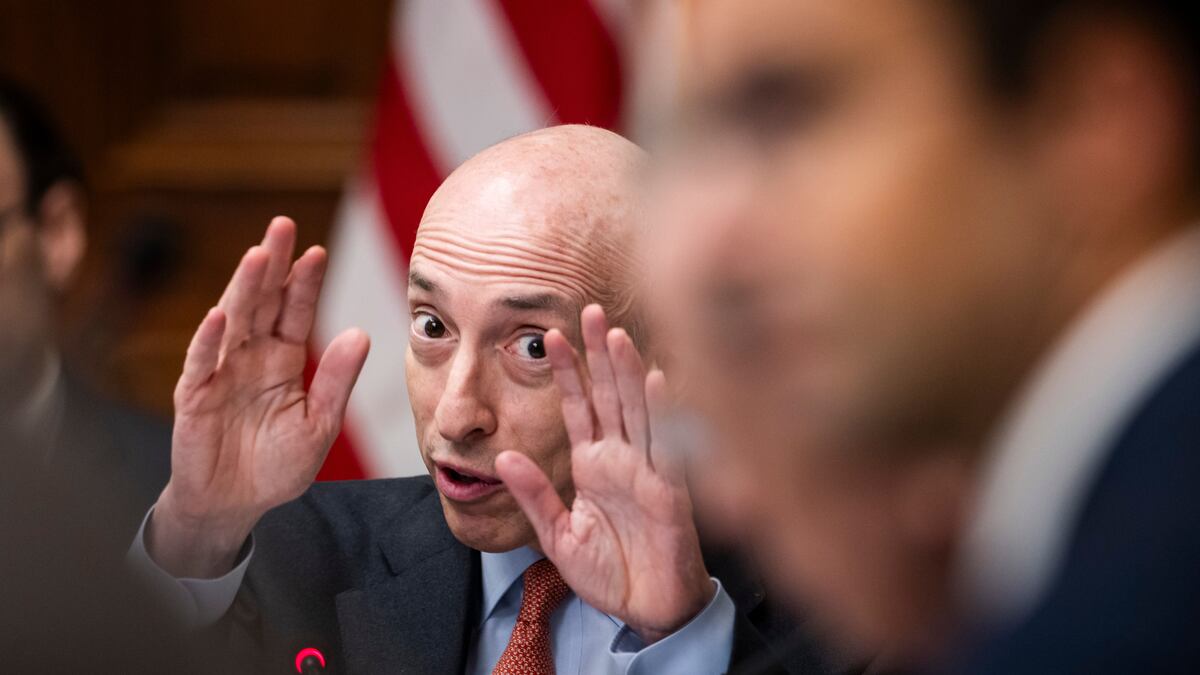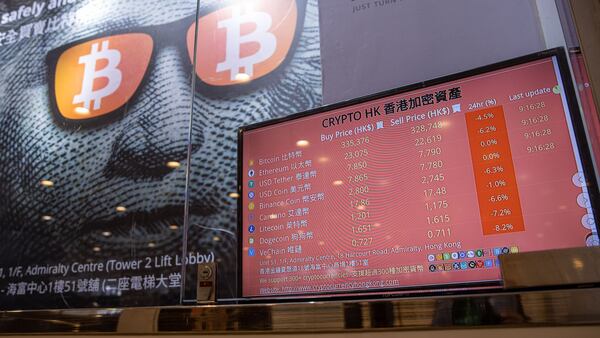- The SEC is reportedly set to approve Ethereum futures exchange-traded funds.
- Investors traded $12.5 billion in Ethereum futures contracts in July.
- A futures product in the US may increase demand for Ethereum.
While Bitcoin futures exchange-traded funds have been around for nearly two years, Ethereum is yet to have one — but that may be about to change.
On Thursday, Bloomberg News reported that the US Securities and Exchange Commission is poised to approve the sale of futures contracts for ETH, the token used in the Ethereum blockchain network and the second most valuable cryptocurrency.
That’s good news for the dozen firms that have long desired to roll out an ETH futures ETF. They include Bitwise, Roundhill, and ProShares, and some funds might be approved as soon as October, Bloomberg reported. Moreover, funds in the hunt for investors may slash fees to capture market share as soon as possible.
Demand influx
An Ether futures ETF could also be a bright spot for DeFi investors who have been whipsawed this year by an endless stream of hacks and heists in the Ethereum-inspired precinct of the crypto world. The futures product could “increase the demand influx for Ethereum in the US,” according to K33 Research. Translation: more volume, and more action.
The advent of ETH futures ETFs may also bolster confidence that the SEC is looking kindly on the many applications filed by asset management firms such as BlackRock for a Bitcoin spot price fund.
NOW READ: Coinbase and Binance crank up lobbying push as Congress prepares to debate crypto bills
That would be a seismic event because ETFs offer investors an affordable way to bet on the performance of stocks, commodities, and perhaps, cryptocurrencies. Plus, ETFs, which trade in the securities markets, tend to be highly liquid.
The hope is that a Bitcoin ETF would finally vault the asset class into the mainstream, and take the rest of crypto along with it.
Unlike a spot ETF, a futures version would offer investors a chance to bet on where the price of ETH will be months from now. These products, which are technically derivatives, are tailored for institutional investors rather than retail traders.
This is why the SEC and its hard charging chair, Gary Gensler, are probably green-lighting their sale even as the agency continues to review the applications for spot BTC funds.
Robust market
While ETH fans may like the news, futures contracts for the token may follow the same trajectory as their Bitcoin counterparts, analysts say. And that could be worrisome for investors.
Two years after their introduction, Bitcoin futures-related ETFs have less than $1.5 billion in total assets under management, Nate Geraci, president of investment advisor ETFStore, told DL News.
‘I believe investors want the real deal.’
— Nate Geraci
Still, there is a robust market in Ethereum futures contracts. In July, investors traded more than $12.5 billion in Ethereum futures on the Chicago Mercantile Exchange, according to Coinglass data. That may be far less than the record high of $34 billion in November 2021, but the action has been consistently greater than $10 billion a month this year.
Fee war
The SEC’s approval is likely to spur a race by asset managers to attract investors. That means a fee war is probably coming.
Roundhill, an asset management firm vying for an Ethereum futures ETF, could take a chunk of the action if its fees are anything to go by. The asset manager disclosed a 0.19% management fee for its fund, Bloomberg Intelligence analyst James Seyffart tweeted.
NOW READ: Aave stablecoin GHO struggles to hold dollar peg. ‘The focus on peg should come later,’ founder says
“This is very low compared to Bitcoin futures ETFs like ProShares’ 0.95%,” Seyffart said. And it may be “drastically lower” than VanEck’s Bitcoin futures product which charges 0.76%.
ETFStore’s Geraci said he thought fees would be below 0.4%, but it “might end up way lower than that.”
“Will be brutal fee competition,” he concluded.
Not as simple as Bitcoin
It will be important to see how investors size up an Ethereum futures ETF compared to its Bitcoin counterpart, Geraci said. Ethereum isn’t as simple as Bitcoin.
As the linchpin of the Ethereum network — and by extension, much of the DeFi ecosystem — Ethereum is more of a software play. Its proposition is wrapped up in providing financial utility to users, whether it’s for payments or loans or collateral for loans or buying NFTs. In contrast, Bitcoin is now widely seen as a speculative asset.
Investors should come at the two digital assets with an entirely different approach, CoinShares’ said last year.
‘Ethereum should be valued differently, assigning a level of utility demand, while Bitcoin is a form of money.’
— Marc Arjoon
“Ethereum should be valued differently, assigning a level of utility demand, while Bitcoin is a form of money and should be valued via a monetary demand model,” research associate Marc Arjoon wrote.
Put another way, Ethereum is a closer match to tech companies than it is to Bitcoin, Arjoon argued. As a result, its correlation to the Nasdaq will “likely rise above that of Bitcoin over time as investors grasp its complexities.”
The upshot: Ethereum’s futures ETFs might decouple from the course Bitcoin’s futures products took. And there is another consideration — if the SEC approves a spot BTC ETF, there could be a big shift in assets from futures to the spot market.
“I believe investors want the real deal,” Geraci said, referring to spot ETFs.
Decent proxy
Analysts are already trying to figure out the scale of the Ethereum futures ETF marketplace. Bitcoin’s market cap is around $500 billion, while Ethereum’s is a little less than half that. “I think that’s a decent proxy for what to expect from Ethereum futures ETFs,” Geraci said.
Matt Kunke, a research analyst at market maker GSR, is also making estimates.
“We anticipate the upper bound on demand will similarly be around $1 billion,” he told DL News. This is a fraction of what the market maker would expect for a spot ETF, he added.
Have a tip about the crypto markets? Contact the author at adam@dlnews.com.



